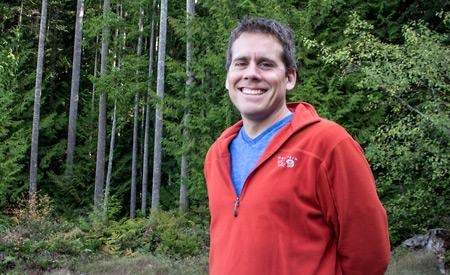Work is underway to have a 30-acre parcel of land within the agricultural land reserve (ALR) near Brooks Secondary School taken out and rezoned to allow the construction of Sino Bright School’s Powell River campus.
City of Powell River councillor Russell Brewer is working to ensure the city can benefit from the development and at the same time not lose any ALR land.
Brewer suggested making an application to BC Agricultural Land Commission to have 30 acres of the city’s private land near Black Point, known as airport reserve lands, included into the ALR to make up for land taken out near Brooks. Currently, approximately half of the nearly 200-acre land is already classified as ALR.
He presented his idea to council during the Tuesday, September 29 committee of the whole meeting.
“Generally, I support no net-loss [of agricultural land], as many people do,” said Brewer after the meeting. “I hold the long-term view that we are going to be leaning on agriculture more as we carry on here. It is unusual that a city owns land that is not within a municipal boundary, but it will give us options down the road.”
In the fall of 2014, City of Powell River and School District 47 announced that an agreement had been reached with Sino Bright to construct a high-school campus with dormitories for 400 students from the People’s Republic of China.
Sino Bright operates 11 BC offshore schools in China and has a partnership agreement with Powell River Board of Education.
Powell River councillors reported to cabinet ministers at the Union of BC Municipalities convention held last month that the project would generate $37.4 million from construction and $18.9 million in value-added gross domestic product for the province.
According to UBCM ministerial briefing notes, the school hopes to have its application to have the 30-acre parcel taken out of the ALR by the end of 2015 and have construction begin early in 2016.
It is estimated that once operating the school will create 107 jobs in Powell River and $18.9 million in revenues, according to an economic impact assessment prepared by Vancouver-based economist Jamie Vann Struth.
The parcel of land where Brewer is suggesting as the new ALR parcel is approximately 200 acres off of Duck Lake Road near Highway 101, about 15 kilometres south of town. The city bought it for construction of a new airport more than 50 years ago.
Local history enthusiast Ann Nelson said the city acquired the land after Powell River Airport opened up in June of 1952.
Nelson explained the Duncan Street airport did not allow for longer runways, which sparked a debate about relocating the airport to near Black Point to construct paved runways that larger aircraft could use. Also, there were discussions of Boeing building facilities in Powell River at the time, she said.
The plans for another airport were ultimately scrapped when, by the mid-1960s, larger planes did not need as much runway to take off.
“We’ve got land south of the city, in the airport reserve, some of which is already ALR land and some of which isn’t,” said Brewer. “So why not move some of that into the ALR? It’s definitely equivalent, if not better land.”
He added that he doubts the land could ever be used for the construction of a new airport.
“I can’t imagine ever an airport being built there, behind all those properties,” he said. “If ever we get to the point where we need a new airport, there are tons of other places more suitable.”
Council asked staff to look into the feasibility of the idea. Brewer said that before the ALR inclusion can go forward it will have to receive the support of Powell River Regional District agricultural committee and meet the requirements set out in Electoral Area B and C’s official community plan.
Brewer said he would like to see the city hold onto the airport reserve land and continue to use it for forestry and look at agricultural partnerships with Vancouver Island University or other non-profits.



